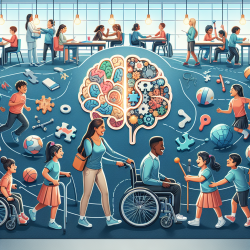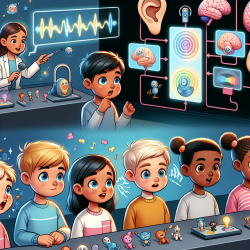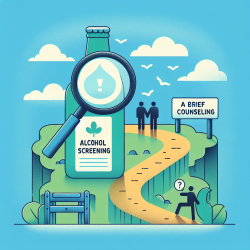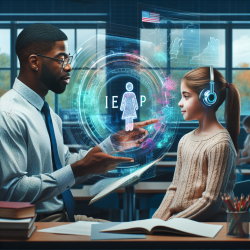The transition from hospital to school for children with acquired brain injury (ABI) is fraught with challenges that impact their physical, cognitive, behavioral, social, and emotional well-being. The research article "A Qualitative Synthesis of Families’ and Students’ Hospital-to-School Transition Experiences Following Acquired Brain Injury" by Hartman et al. (2015) offers valuable insights that can guide practitioners in creating smoother transitions and better outcomes for these students. Here are key takeaways and recommendations based on the study's findings:
Lack of Education on ABI
One of the most significant barriers identified is the lack of ABI-specific education for families and school professionals. Practitioners can address this by:
- Providing comprehensive training sessions for teachers and school staff on the specific needs and challenges faced by students with ABI.
- Creating easy-to-understand resource materials for parents to help them navigate the educational and rehabilitative processes.
Improving Communication
Effective communication between hospitals, schools, and families is crucial. The study highlights that gaps in communication can hinder a child’s reintegration into school. To improve communication:
- Establish formal communication channels that ensure regular updates and information sharing among all stakeholders.
- Encourage the use of communication logs or digital platforms where parents and teachers can share observations and concerns.
Emotional Support
Emotional challenges such as frustration, depression, and anxiety are common among students with ABI. Practitioners should:
- Provide access to school-based counseling services to support students' emotional well-being.
- Train teachers to recognize signs of emotional distress and refer students to appropriate support services.
Peer Relationships
Maintaining and rebuilding peer relationships is vital for the social integration of students with ABI. Strategies include:
- Implementing peer mentoring programs to foster supportive relationships.
- Educating classmates about ABI to promote understanding and inclusivity.
Providing Adequate Support
Both students and families benefit from robust support systems. Practitioners can:
- Ensure that students have access to educational aides and personalized learning plans.
- Offer family counseling and support groups to help parents navigate the transition process.
Addressing ABI Sequelae in the Classroom
The cognitive and physical sequelae of ABI can significantly impact classroom performance. To address these challenges:
- Implement individualized education plans (IEPs) that include accommodations such as extended time for tests and assignments.
- Regularly review and adjust educational strategies based on the student's evolving needs.
Future Research Directions
The study suggests several areas for future research, including:
- Exploring the effectiveness of specific interventions and support programs.
- Investigating the impact of socio-economic and cultural factors on the transition process.
Conclusion
The transition back to school for students with ABI is complex and requires a coordinated effort from educators, healthcare providers, and families. By implementing the strategies outlined in this blog, practitioners can significantly improve the reintegration process and outcomes for these students.To read the original research paper, please follow this link:
A Qualitative Synthesis of Families’ and Students’ Hospital-to-School Transition Experiences Following Acquired Brain Injury.










